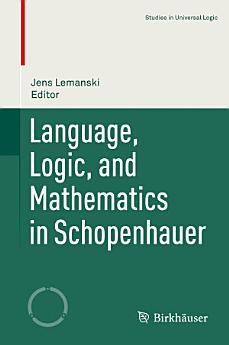Language, Logic, and Mathematics in Schopenhauer
เกี่ยวกับ eBook เล่มนี้
Beginning with Schopenhauer’s philosophy of language, the chapters examine the individual aspects of his semantics, semiotics, translation theory, language criticism, and communication theory. Additionally, Schopenhauer’s anticipation of modern contextualism is analyzed. The second section then addresses his logic, examining proof theory, metalogic, system of natural deduction, conversion theory, logical geometry, and the history of logic. Special focus is given to the role of the Euler diagrams used frequently in his lectures and their significance to broader context of his logic. In the final section, chapters discuss Schopenhauer’s philosophy of mathematics while synthesizing all topics from the previous sections, emphasizing the relationship between intuition and concept.
Aimed at a variety of academics, including researchers of Schopenhauer, philosophers, historians, logicians, mathematicians, and linguists, this title serves as a unique and vital resource for those interested in expanding their knowledge of Schopenhauer’s work as it relates to modern mathematical and logical study.




